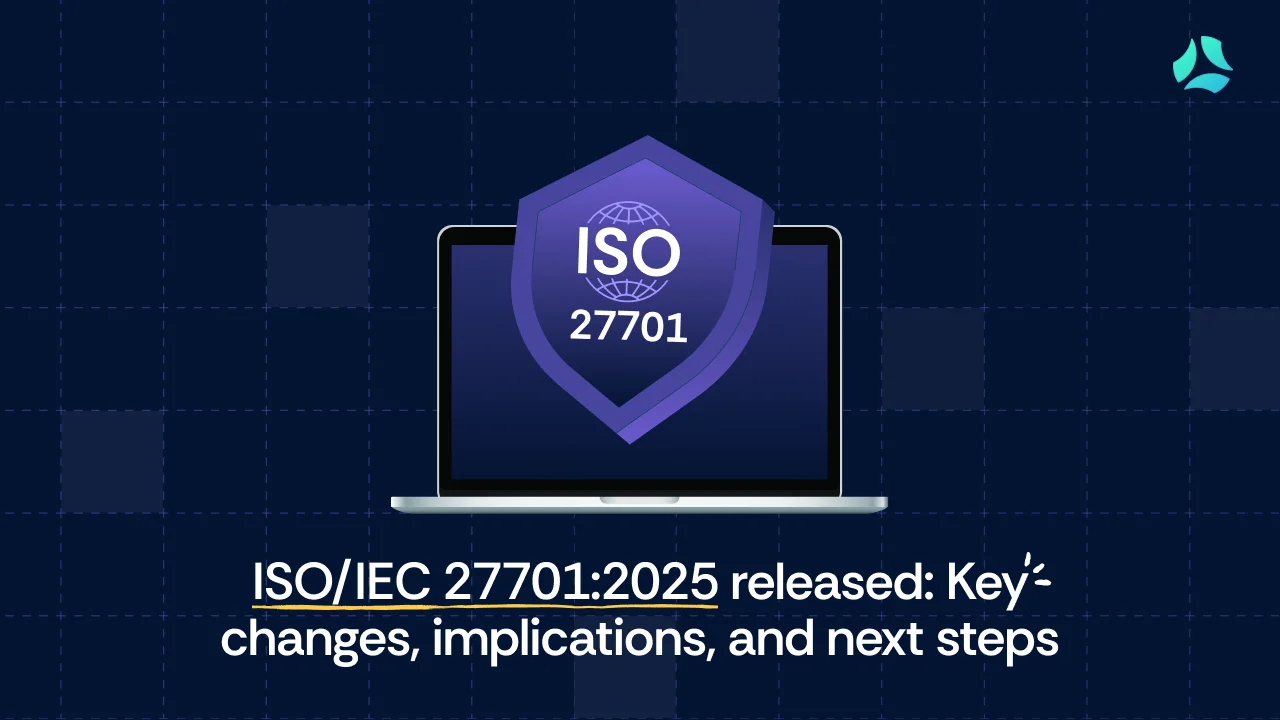Understanding the costs of compliance: Beyond the price tag
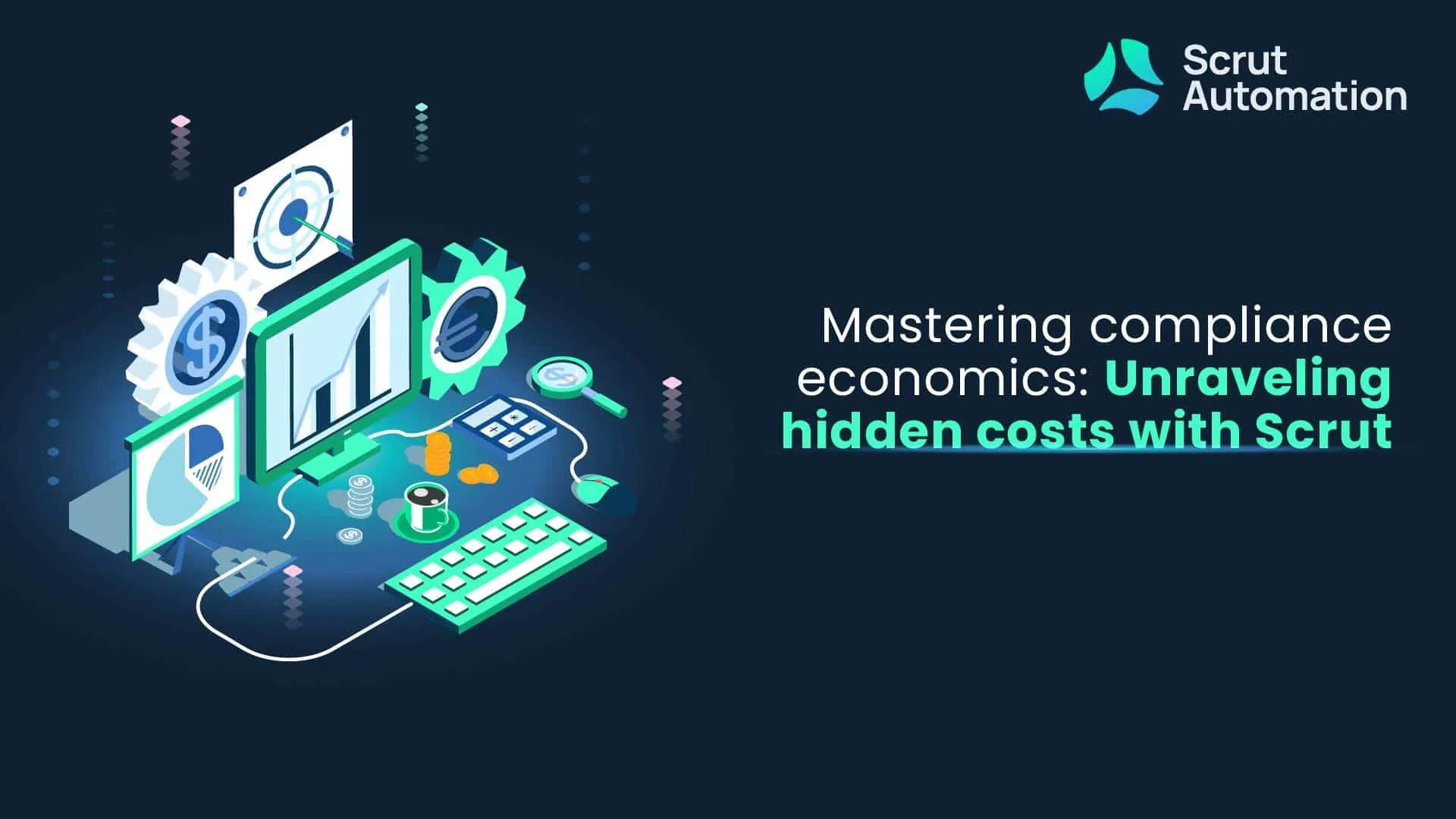
Compliance is a multifaceted concept that holds paramount importance in today’s ever-evolving business landscape.
It serves as a guiding principle to ensure that organizations operate ethically, transparently, and responsibly. Whether in finance, healthcare, manufacturing, or technology, adherence to regulatory frameworks is not just a legal obligation but a strategic imperative.
In the financial sector, for instance, compliance ensures the integrity of transactions, protects consumers, and maintains the stability of the financial system. Meanwhile, in healthcare, compliance safeguards patient privacy, data security, and the overall quality of care. With the rise of AI, we are even seeing companies deploy LLMs to reduce compliance expenses.
But it doesn’t come without a cost. Even though many organizations choose to put compliance on the backburner due to its costly procedure – what they fail to understand is that the repercussions of non-compliance are more to bear.
Let’s do a deep dive into the compliance cost and discuss the best measures to balance the same.
Traditional understanding of compliance costs and the need for a comprehensive approach
Traditionally, the focus on compliance costs has been primarily financial, involving direct expenses such as regulatory fees and indirect costs like legal fees and potential fines.
However, the traditional understanding falls short of addressing the complete spectrum of compliance-related expenditures. These extend beyond monetary considerations to encompass operational impacts and the investments required in areas like security and technology.
As businesses grapple with an increasingly complex regulatory environment, a comprehensive approach to compliance is becoming imperative. The interconnectedness of global markets, the rise of digital technologies, and the evolving nature of threats necessitate a more nuanced understanding of compliance costs.
This insight lays the groundwork for innovative solutions like Scrut, going beyond conventional approaches to both manage compliance effectively and optimize associated costs.
The comprehensive costs of compliance

Understanding compliance requires a nuanced examination of its comprehensive costs, extending beyond the financial realm into operational and security dimensions.
A. Financial costs
Financial costs represent the monetary investments businesses make to ensure adherence to regulatory standards. These costs can be categorized into direct and indirect expenses.

B. Operational costs
Compliance significantly influences day-to-day operations, necessitating adjustments in processes and procedures to meet regulatory requirements.
1. Impact on day-to-day operations
Compliance requirements can disrupt regular business operations, leading to delays, process reconfigurations, and additional administrative tasks. The impact on daily workflows is a crucial aspect of the overall compliance cost landscape.
2. Changes in processes and procedures
Adapting to compliance standards often requires organizations to modify existing processes and implement new procedures. These changes, while essential for compliance, may incur additional operational costs.
C. Security costs
Security is a fundamental aspect of compliance, and organizations are required to invest in various measures to ensure the confidentiality and integrity of their systems and data. Some such expenses are as follows:
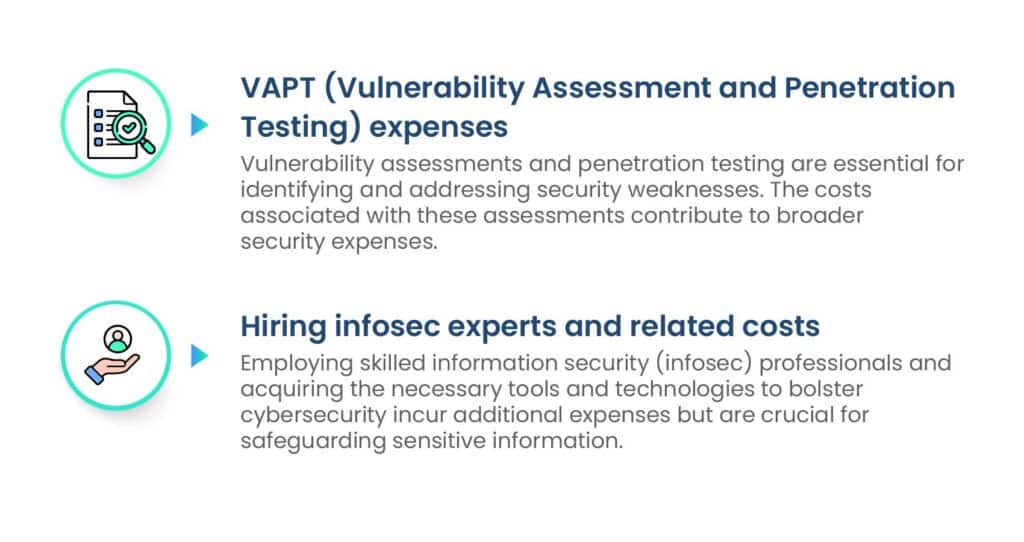
D. Auditor fees
The role of auditors in compliance is pivotal, and businesses often engage external auditors to assess their adherence to regulatory standards.
Auditors play a critical role in independently evaluating an organization’s compliance posture. Their assessments provide assurance to stakeholders and regulatory bodies.
Engaging auditors comes with its own set of costs. Traditional fees for compliance audits include expenses related to the auditor’s time, resources, and expertise.
Scrutinizing compliance costs with Scrut
It is no surprise that businesses are seeking innovative solutions to manage and optimize the diverse costs associated with regulatory adherence.
In the middle of all this chaos, Scrut emerges as a comprehensive compliance management tool, offering a paradigm shift in addressing and reducing various compliance expenditures.
Scrut is not merely a compliance and risk management platform; it’s a dynamic solution that revolutionizes the way businesses approach compliance. A one-stop destination for all compliance needs, Scrut integrates advanced features to streamline processes, enhance security, and ensure adherence to evolving regulatory standards.
How does Scrut address and reduce various compliance costs?
From financial to operational and security expenses, Scrut is designed to identify inefficiencies, streamline workflows, and ultimately reduce the overall financial burden associated with regulatory compliance.
Below are some of Scrut’s features that help organizations streamline their compliance process on a single platform.
1. Real-time monitoring for reduced financial costs
Traditional compliance management often falls short due to delayed tracking and response mechanisms. It also requires a team of assigned individuals to track every detail.
With Scrut, real-time monitoring is a breeze, ensuring that businesses stay abreast of compliance status instantly, minimizing the risk of oversights and non-compliance.
The platform supports innovative dashboards that help you stay on track of your completed policies, assigned evidence, and tests.
Scrut helps you stay on top of your compliance game and avoid direct and indirect expenses resulting from legal proceedings or fines due to non-compliance.

2. Automated evidence collection for reduced financial costs
At Scrut, our automated software gathers evidence from diverse sources, minimizing human intervention in the process. Additionally, Scrut maintains a centralized repository for evidence collection, allowing documents gathered for one framework to be utilized for all pertinent frameworks seamlessly. This feature streamlines the process, reducing the time and resources spent on compliance activities.
3. Multiple integrations for reduced operational costs
Scrut’s multiple integrations with 70+ popularly used applications allow for seamless data collection and analysis. This integration minimizes disruptions to daily workflows, as compliance-related tasks can be performed within existing operational processes. Needless to say, it has an impact on day-to-day operations.
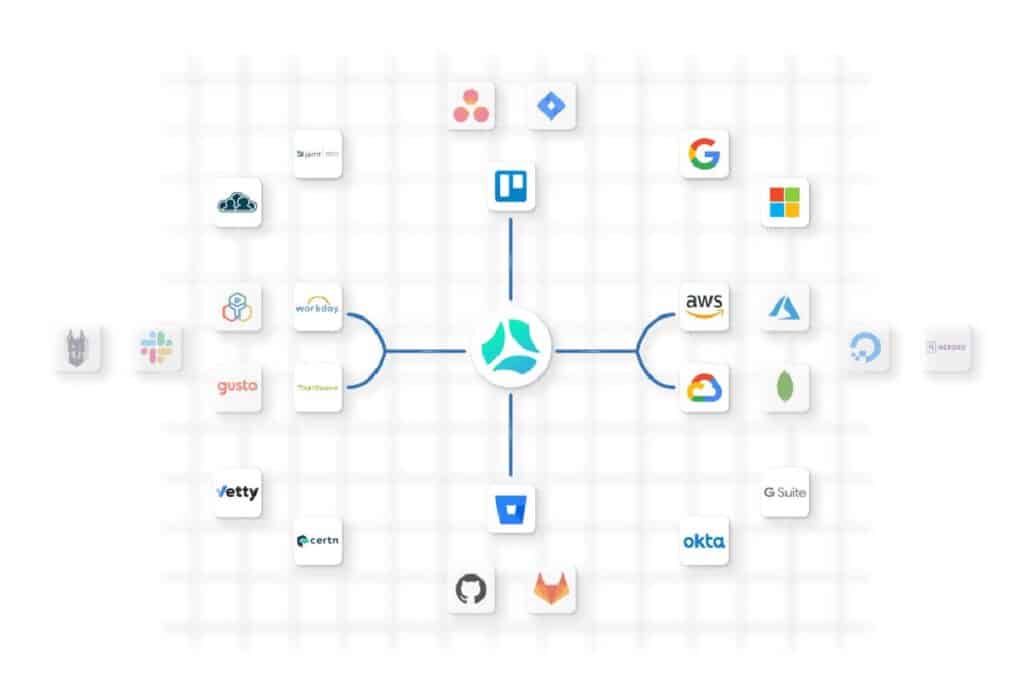
4. One-stop risk management platform for reduced financial and security costs
Scrut’s one-stop risk management platform provides real-time monitoring and alerts, helping organizations identify and address compliance issues promptly. By detecting potential non-compliance early on, Scrut helps mitigate the risk of legal proceedings and fines, thus reducing indirect costs.
The platform offers customizable workflows and templates, enabling organizations to adapt their processes and procedures to meet compliance requirements efficiently. This flexibility reduces the time and effort required to implement and maintain compliance-related changes.
In the realm of vendor risk assessment, Scrut simplifies the questionnaire creation process, offering the flexibility to use pre-built templates or tailor custom ones. Users can set submission and review dates, as well as designate specific reviewers.
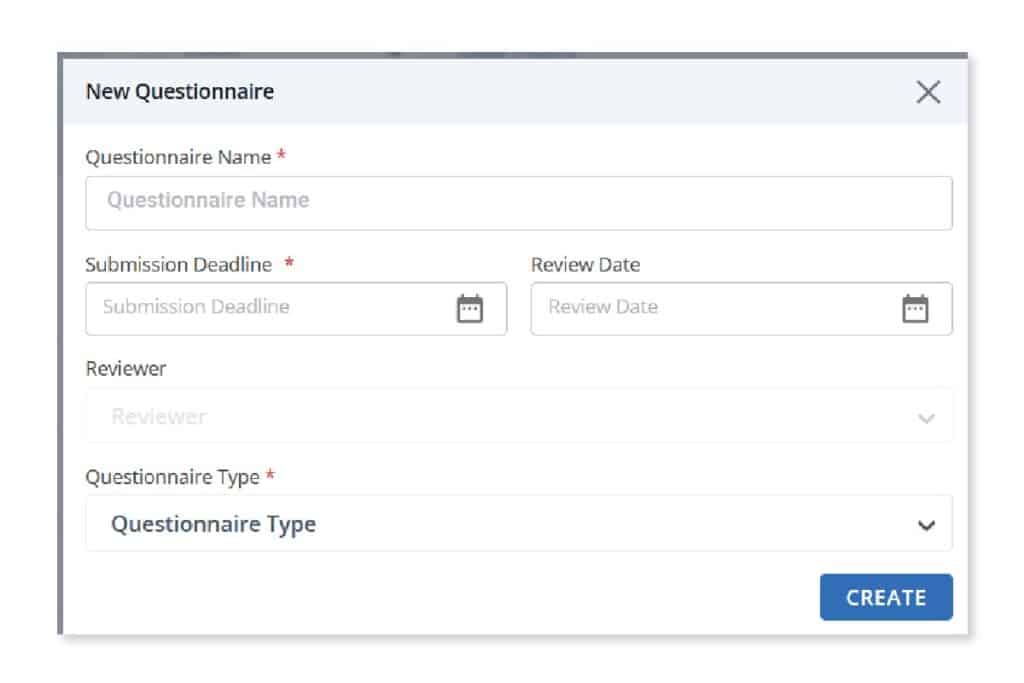
Once risks are identified, Scrut’s platform offers the opportunity to create mitigation tasks to remediate them and allows for collaboration with other team members as well.
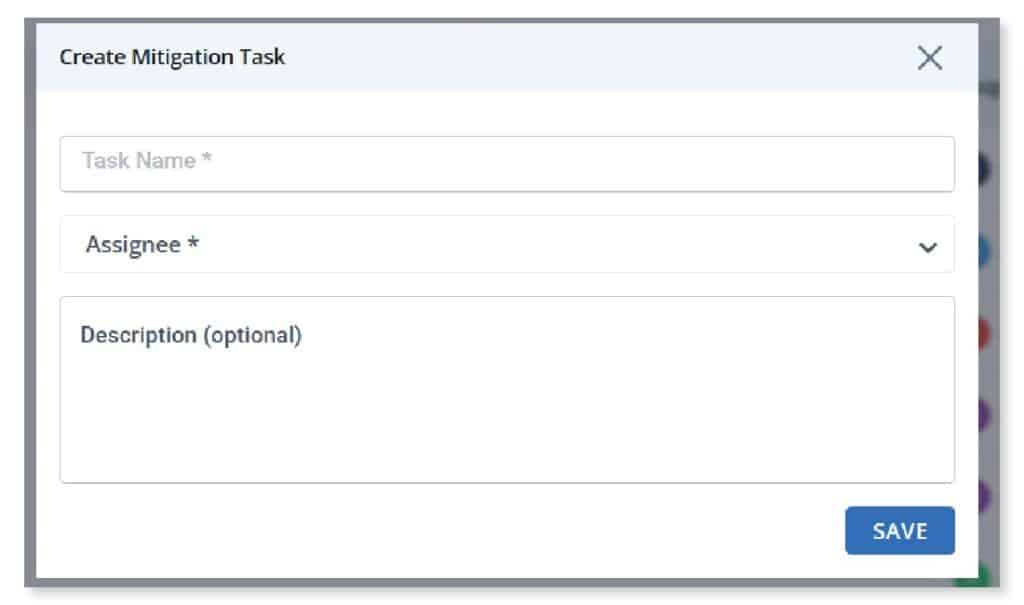
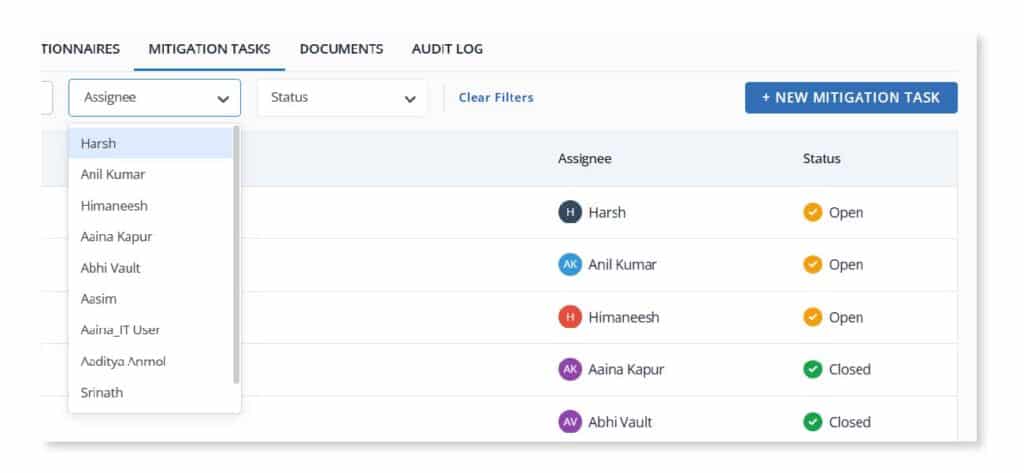
5. Audit assistance for reduced auditor costs
Scrut’s platform streamlines the audit process by providing auditors with access to real-time compliance data and evidence. This feature reduces the time and effort required for audits, ultimately lowering auditor fees for organizations.
6. VAPT and security management for reduced security costs
Scrut facilitates automated VAPT (Vulnerability Assessment and Penetration Testing), providing organizations with insights into their security posture. This feature helps identify and remediate vulnerabilities proactively, reducing the risk of security breaches and associated costs.
By offering a centralized platform for security monitoring and management, Scrut minimizes the need for additional infosec resources. Organizations can leverage Scrut’s tools and technologies to strengthen their cybersecurity posture without incurring significant hiring and training expenses.
The ROI of Scrut’s pricing model: Case studies
Successful implementation of Scrut in reducing compliance costs
CargoFL, a key player in logistics, achieved significant success through the implementation of Scrut. Facing the challenge of extensive time commitments and potential data security issues, CargoFL leveraged Scrut’s comprehensive solution.
Deepesh Kuruppath CEO, CargoFLThe beauty of your product is the convenience of automation combined with the unmatched human expert support. This ensures full clarity from the bottom to the top level, which is crucial for us to display the mark of quality and enhance customer trust.
Scrut’s platform streamlined their compliance processes, saving them 75% of time with pre-built templates and reducing enterprise outreach effort by 2/3rd. This successful implementation not only ensured compliance but also optimized time and resources, demonstrating Scrut’s efficacy in reducing overall compliance costs.
Comparison of total compliance costs before and after adopting Scrut
Examining the compliance journey of Xeno, an AI-powered CRM working with global brands, reveals a compelling story of cost reduction. Before adopting Scrut, Xeno grappled with manual processes, cloud risk monitoring challenges, and complex compliance frameworks.
After implementing Scrut, they experienced streamlined compliance efforts, reduced cloud infrastructure risks, and automated vendor risk assessments. The before-and-after scenario indicates a stark contrast in total compliance costs, with Scrut significantly contributing to cost reduction through its efficient platform.
Calculating the return on investment with Scrut’s pricing
Clark Van Oye, CEO of Cortico, underscores the transformative impact of Scrut’s pricing model on their business operations. Seeking a turnkey solution, Cortico turned to Scrut, recognizing the substantial benefits it would offer in terms of expense reduction while ensuring alignment with market access needs.
In the intricate landscape of compliance, where identifying and prioritizing the right certifications is paramount, Scrut’s platform proved invaluable for Cortico.
Leveraging Scrut’s automations and workflows, Cortico achieved significant efficiency gains, saving approximately 800 hours in the compliance attainment process. The streamlined and automated approach not only enhanced Cortico’s security posture but also facilitated the acquisition of larger customers and entry into new markets.
The time and resource optimization facilitated by Scrut’s pricing model contributed to a measurable return on investment for CargoFL as well, showcasing the financial benefits realized through the adoption of Scrut.
The future of cost-effective compliance management
The regulatory landscape is in a state of constant flux, with new standards and requirements emerging regularly. This evolution directly impacts the costs associated with compliance.
Scrut recognizes the dynamic nature of these changes and positions itself as a solution that can adapt seamlessly to evolving regulatory environments. By staying ahead of compliance requirements and automating processes, Scrut becomes an essential ally in mitigating the potential cost impacts of regulatory shifts.
Sustained cost-effectiveness in compliance management requires a commitment to continuous improvement and adaptation. Scrut, as a dynamic platform, embodies this principle by offering regular updates, incorporating feedback, and staying attuned to emerging trends.
Do you want to go beyond the costs of compliance and partner with a solution that helps you optimize your security program without burning a hole in your pocket? Book a demo and talk to our experts.
Frequently Asked Questions
1. How does Scrut’s pricing model differ from traditional compliance solutions?
Scrut’s pricing model is unique in its approach, focusing on efficiency gains and overall cost reduction. Traditional solutions often involve fixed fees or complex pricing structures that may not align with a business’s actual compliance needs.
2. Can Scrut handle the compliance requirements of different industries?
Yes, Scrut is designed to be versatile and adaptable to various industries. Its comprehensive compliance management tool can be tailored to meet the specific regulatory standards of different sectors, ensuring a customized and effective solution.
3. What are the key features that contribute to Scrut’s cost-effectiveness in compliance management?
Scrut’s cost-effectiveness is driven by features such as real-time monitoring, predictive analytics, and a unique pricing model. The use of pre-built templates, automation, and streamlined workflows significantly reduces the time and effort required for compliance tasks.
4. How does Scrut ensure data security while managing compliance processes?
Scrut prioritizes data security by implementing robust measures on its platform. The system adheres to industry standards and best practices, safeguarding sensitive information throughout the compliance management process.
5. Is Scrut suitable for both small startups and large enterprises?
Yes, Scrut is designed to cater to businesses of all sizes. Whether you’re a startup looking to establish compliance practices efficiently or a large enterprise aiming to optimize costs at scale, Scrut’s flexibility and scalability make it a suitable solution for a diverse range of organizations.




